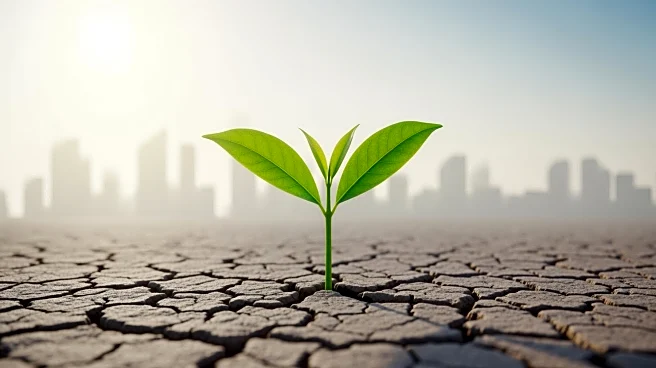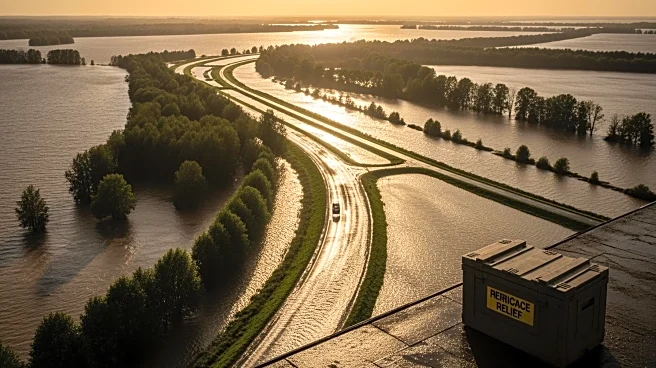What's Happening?
India has implemented stricter anti-pollution measures in New Delhi and surrounding areas as air quality levels have reached 'severe' status. The Commission for Air Quality Management has activated stage three of the Graded Response Action Plan, which
includes a ban on non-essential construction and restrictions on industrial activities using polluting fuels. This decision follows a rare public protest demanding cleaner air, highlighting the growing public concern over pollution in the capital. The measures aim to prevent further deterioration of air quality, which has been exacerbated by crop stubble fires and emissions trapped by cold, dense winter air.
Why It's Important?
The enforcement of stricter pollution controls in Delhi underscores the urgent need to address air quality issues in one of the world's most polluted cities. Poor air quality poses significant health risks to the city's 30 million residents, including respiratory and cardiovascular problems. The government's actions reflect a response to public pressure and the necessity to protect public health. These measures could serve as a precedent for other cities facing similar challenges, potentially influencing policy changes and encouraging the adoption of cleaner technologies and practices. The situation also highlights the broader issue of environmental management in rapidly urbanizing regions.
What's Next?
The effectiveness of these measures will be closely monitored, with potential adjustments based on air quality data. The government may face continued public pressure to implement long-term solutions, such as transitioning to cleaner energy sources and improving public transportation infrastructure. Stakeholders, including environmental groups and policymakers, are likely to advocate for sustained efforts to address the root causes of pollution. The situation may also prompt international attention and collaboration on air quality management strategies.
















